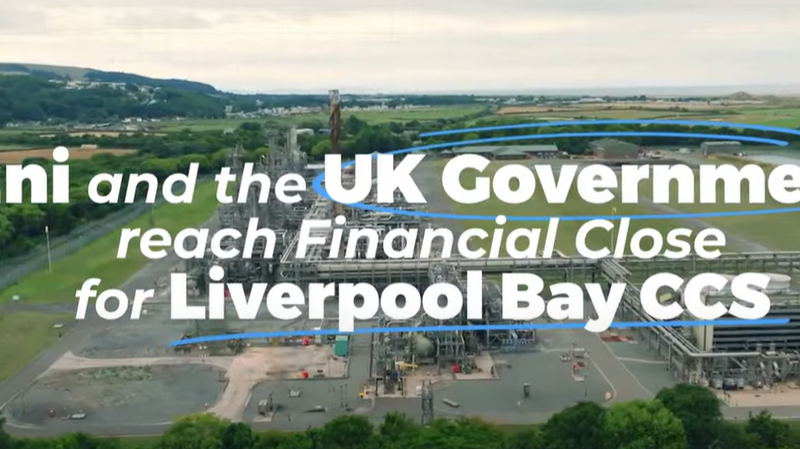Energy firm Eni has confirmed financial close with the UK Government’s Department of Energy Security and Net Zero (DESNZ) for the Liverpool Bay Carbon Capture and Storage (CCS) project, marking a major milestone for the HyNet industrial cluster. Eni serves as the operator of the project’s carbon dioxide transport and storage (T&S) infrastructure.
The agreement enables the project to advance to the construction phase, unlocking significant supply chain investments—most of which are expected to benefit the local economy. The development is set to support industrial activity across the North West of England and North Wales, safeguarding existing jobs and creating new employment opportunities. Around 2,000 jobs are anticipated during the construction phase alone.
The financial close follows the UK Government’s pledge of £21.7 billion over 25 years to support the country’s first two CCS clusters. The investment underlines the UK’s strategic commitment to the decarbonisation of heavy industry and the development of clean energy sectors in industrial heartlands.
UK Energy Secretary Ed Miliband said: “Today we keep our promise to launch a whole new clean energy industry—carbon capture and storage—to deliver thousands of highly skilled jobs and revitalise our industrial communities. This investment with Eni is an example of government and industry working together to build a clean energy future and drive economic growth.”
Eni CEO Claudio Descalzi commented: “This strategic agreement with the UK Government paves the way for industrial-scale CCS development, reaffirming the UK’s leadership in this field. As operator of the HyNet CO₂ transport and storage network, Eni is proud to be at the forefront of creating one of the world’s first low-carbon industrial clusters.”
The Liverpool Bay CCS project is a cornerstone of the HyNet Cluster, which will capture and transport CO₂ from a range of industrial emitters across the region to Eni’s depleted gas reservoirs beneath Liverpool Bay. The scheme will utilise 149 km of existing onshore and offshore pipelines, with an additional 35 km of new infrastructure to connect industrial sites to the network.
The HyNet project is among the most advanced CCS clusters globally and is expected to significantly reduce emissions from sectors including cement, energy-from-waste, and low-carbon hydrogen production. Initial storage capacity is estimated at 4.5 million tonnes of CO₂ per year, with the potential to rise to 10 million tonnes by the 2030s.
Construction is slated to begin later this year, with operations targeted to commence by 2028.
Eni views CCS as a critical technology for industrial decarbonisation and a central pillar of its wider energy transition strategy. The company’s global CCS portfolio includes a gross storage capacity of approximately 3 billion tonnes.















